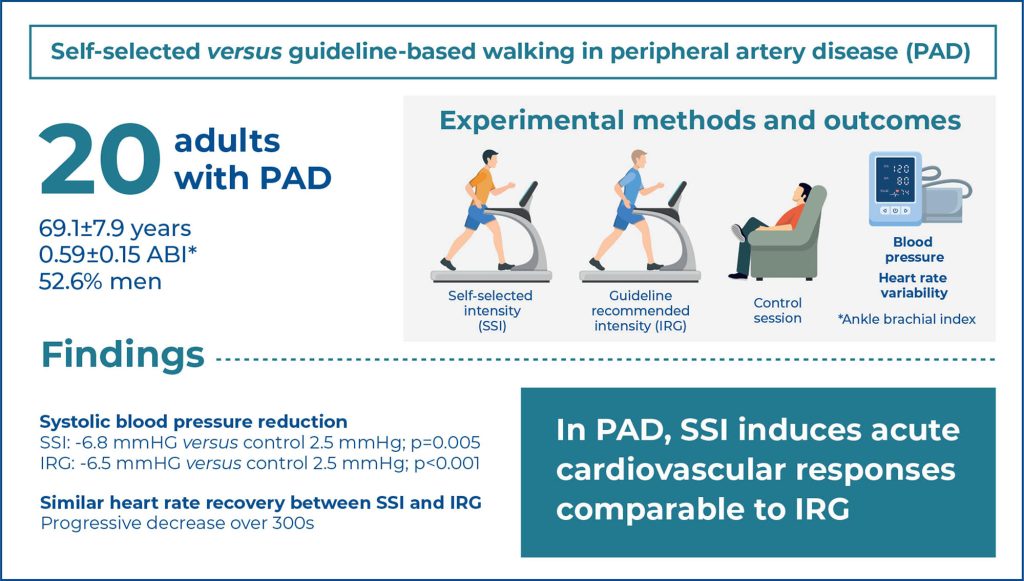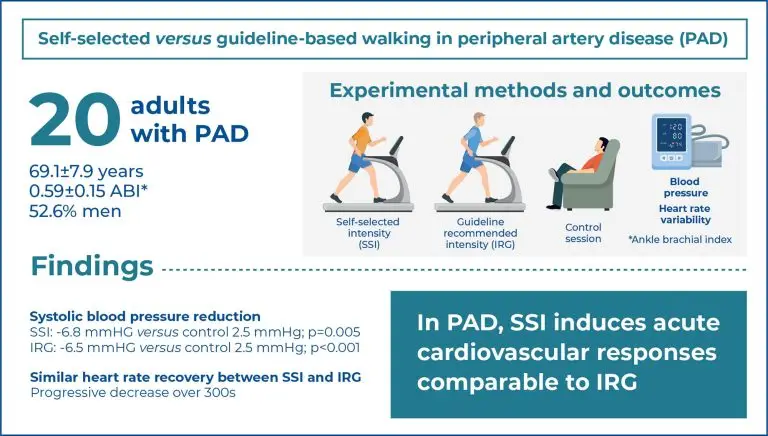einstein (São Paulo). 28/ago/2025;23:eAO1498.
Post-exercise effects of self-selected exercise intensity on cardiovascular parameters in peripheral artery disease: a randomized crossover study
DOI: 10.31744/einstein_journal/2025AO1498
Highlights
■ A single session of self-selected intensity walking reduced systolic blood pressure in individuals with peripheral artery disease.
■ Heart rate recovery responses after self-selected-intensity walking were similar to those following the guidelineprescribed exercise.
■ Self-selected intensity exercise may offer a feasible strategy for patients with claudication, balancing comfort and cardiovascular benefits.
■ These findings support flexible exercise prescriptions tailored to individual comfort without compromising the cardiovascular benefits.
ABSTRACT
Objective:
To analyze the post-exercise effects of self-selected exercise intensity compared with the intensity recommended by guidelines on blood pressure and heart rate variability in participants with peripheral artery disease.
Methods:
This was a randomized crossover trial. Twenty participants with peripheral artery disease (52.6% men; 69.1±7.9 years; ankle-brachial index 0.59±0.15) underwent three experimental sessions: self-selected exercise intensity, intensity recommended by guidelines, and a control session (no exercise). Blood pressure (auscultatory method), heart rate, and heart rate variability were measured before and after the intervention.
Results:
Acute reductions in systolic blood pressure were observed in the exercise sessions compared to the control (p<0.005). The heart rate decreased after control and increased after exercise sessions (p<0.001). The absolute heart rate increase after exercise sessions were higher than that in the Control Group p<0.001. Heart rate recovery showed a progressive decrease post-session over 300 s (p<0.001), with the root mean square of successive differences significantly decreasing up to 60 seconds in both exercise sessions (p<0.05).
Conclusion:
Acute walking exercise sessions prescribed at self-selected exercise intensity had similar effects on reducing systolic blood pressure and heart rate recovery compared with walking exercise session performed at the guideline-recommended intensity.
[…]
Palavras-chave: Intermittent claudication; Peripheral arterial disease; Vascular diseases; Blood pressure; Heart rate; Walking
79



